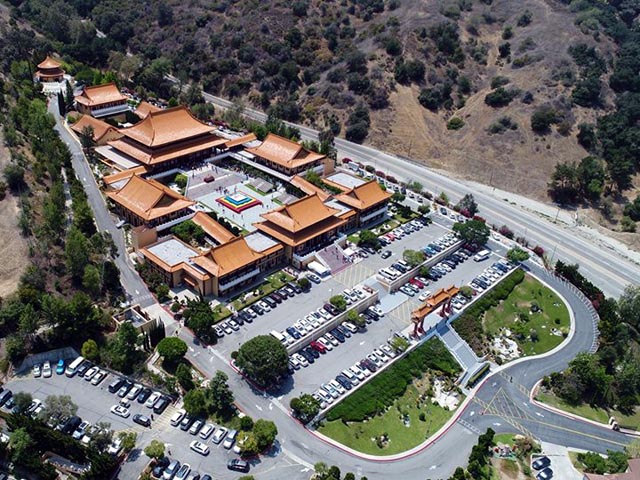
Mountain Gate
The Temple’s symbolic gate provides a welcome by the International Buddhist Progress Society (IBPS). The Chinese characters on the back of the gate list the four universal vows of Buddhists: to save all sentient beings, to eradicate delusion and stress, to the boundless Dharma, and to attain supreme enlightenment. Making vows is integral to Buddhism because it provides people the strength to fulfill their practice.
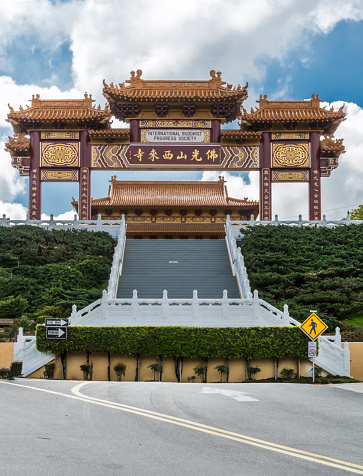
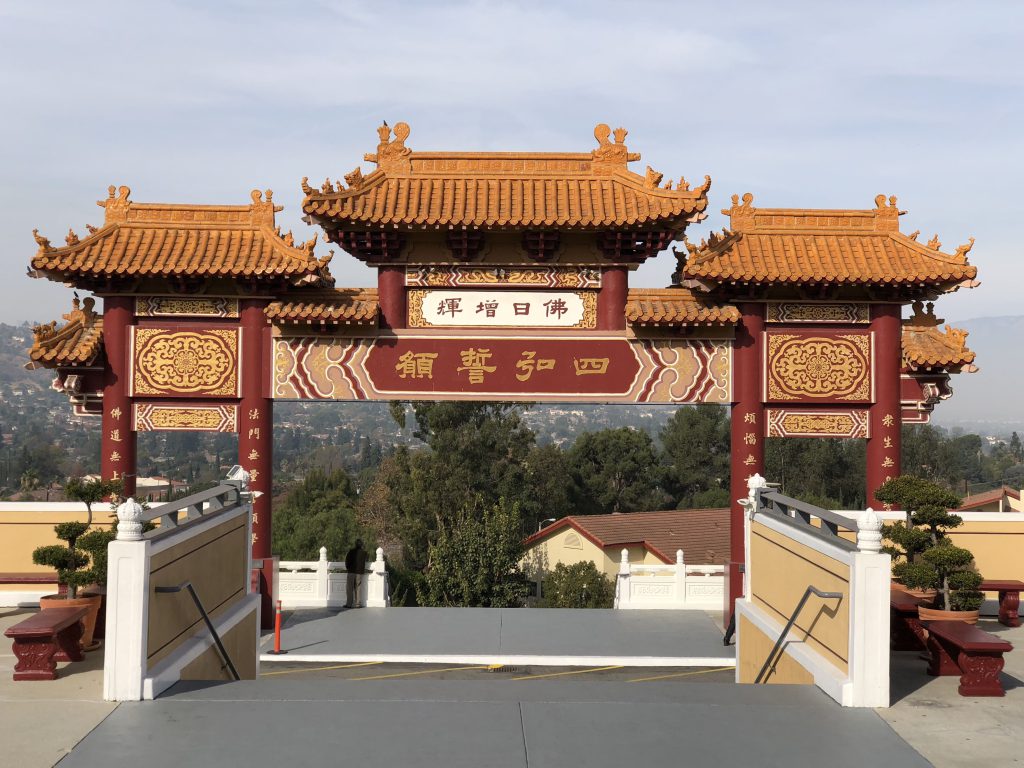
Bodhisattva Hall
Atop the steps from the upper level parking lot is the Bodhisattva Hall. This hall is dedicated to several enlightened sages who vowed to selflessly serve others with loving-kindness and compassion, and are committed to liberating all beings from suffering. In other words, they are “Buddhas in training.” Each bodhisattva represents a virtuous quality essential to all Buddhists.
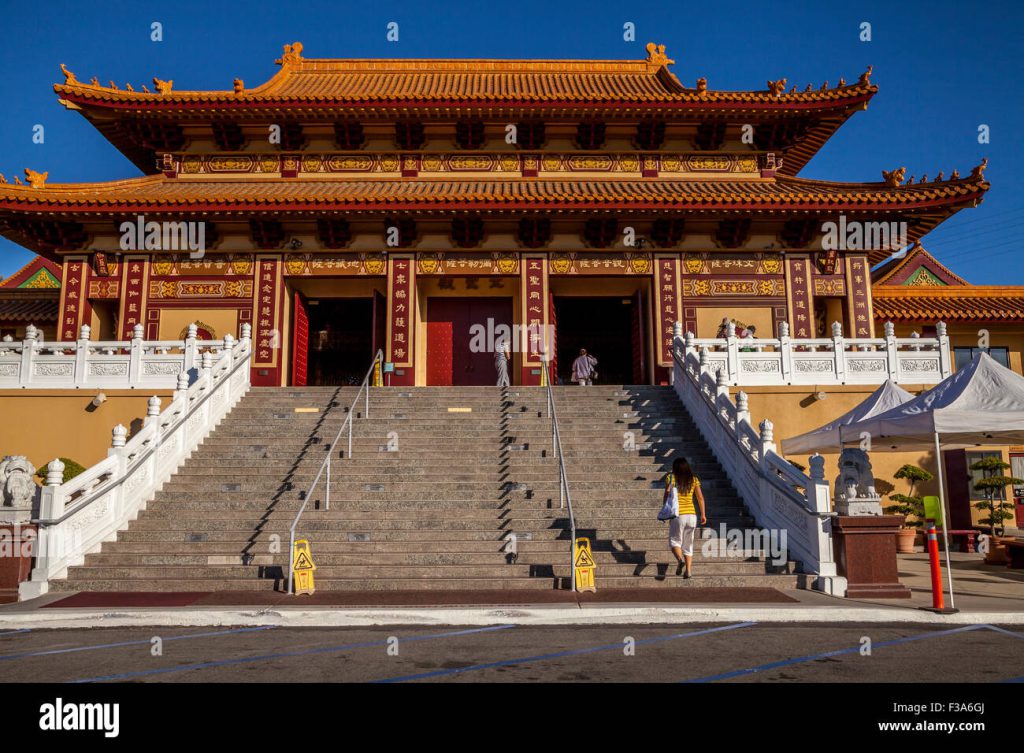
Courtyard
Known as the “Way to Buddhahood,” the Courtyard is used for walking meditation during retreats as well as many outdoor events. Its geometric pavement rectangles symbolize the rice paddies of China with weeds growing around the edges. If we plant good sees and rid our minds of all defilements (weeds) through the practice of Buddhism, eventually we will reap merits and attain Buddahood. According to Buddhist teachings, the lions in each corner of the courtyard symbolize strength and courage, and their roars awaken us from ignorance.

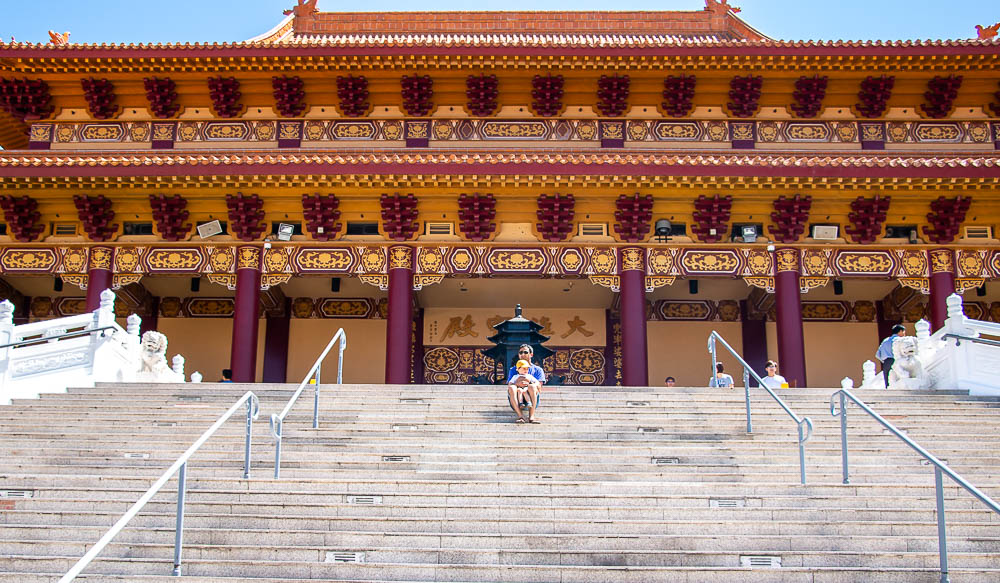
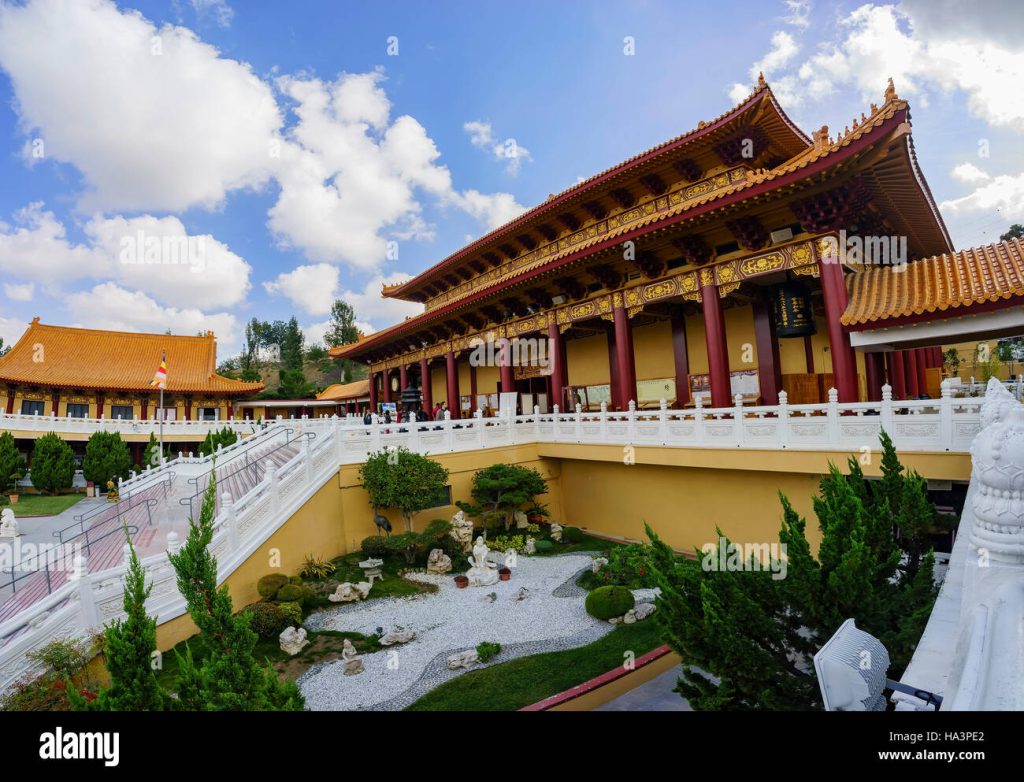
Arhat Garden
Seated in this lovely garden are the Eighteen Arhats. As disciples of the Buddha, they have realized the truth of no-self and overcame the defilements of greed, anger and ignorance. They understood Buddha’s teaching that everything is an illusion created by the five senses, dependent on other phenomena, originally empty, and subject to impermanence. Having eradicated all passions, desires, and attachments to worldly matters, each Arhat is foremost in his discipline. Their unique ways of practicing Bodhisattvahood have been inspirational for many Buddhist followers since the time of Sakyamuni Buddha.
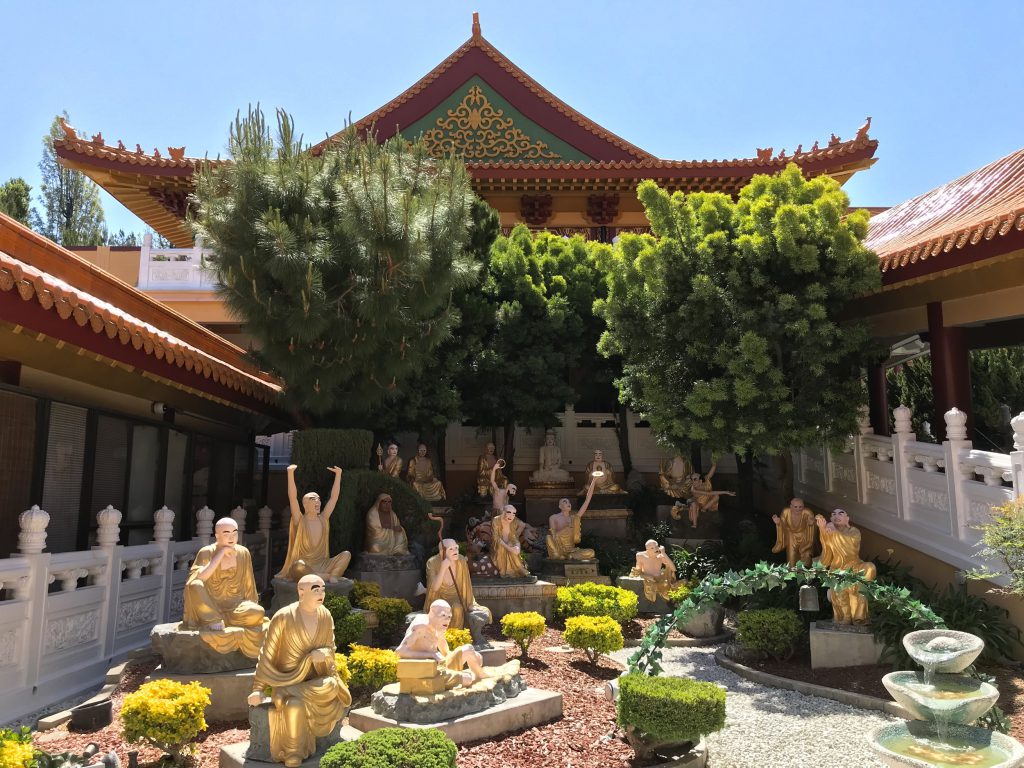
Avalokitesvara Garden
Avalokitesvara (Guanyin) Bodhisattva is seated on a giant rock with her youthful attendants, Shancai and Longnu, standing beside her. Surrounding the pond are the four Deva Kings: Virudhaka of the Southern Kingdom (holding a dragon), Dhanada of the Northern Kingdom (holding an umbrella) and Dhrtarastra of the Eastern Kingdom(holding a sitar). The Deva Kings are revered as guardians who protect devout sentient beings from being harmed by unwholesome elements. Also venerating Guanyin bodhisattva are the Dragon Kings of the Four Seas. The waterfall in this lovely landscape symbolizes the dharma flowing everywhere to purify people’s mind.
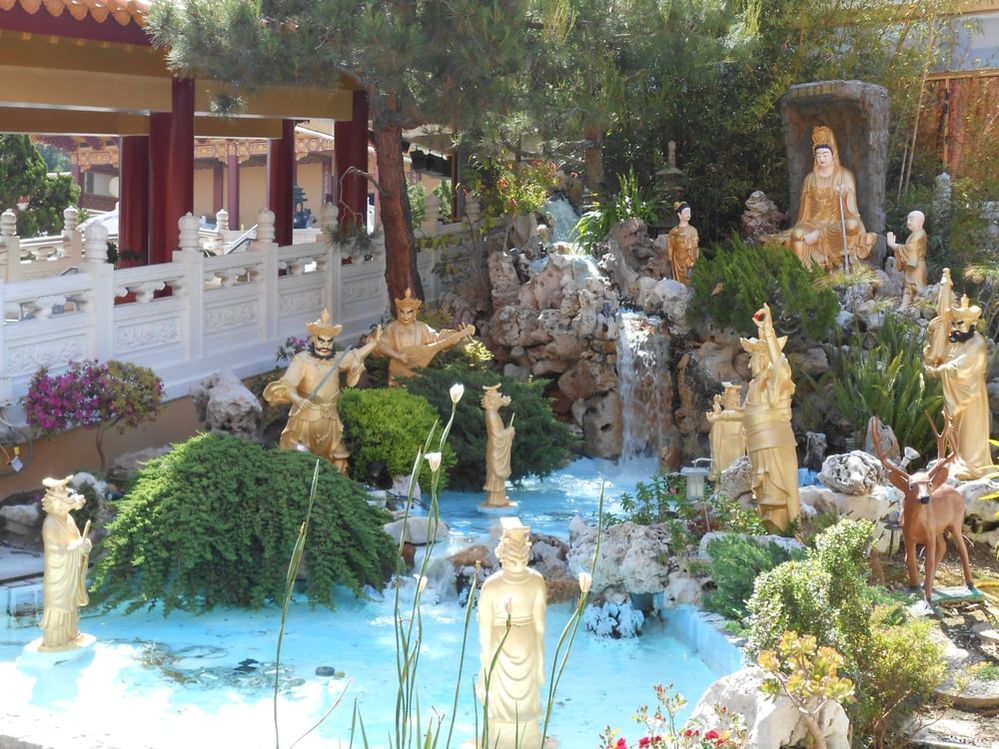
Sources:
http://www.hsilai.org/en/tours/exporehlt.php